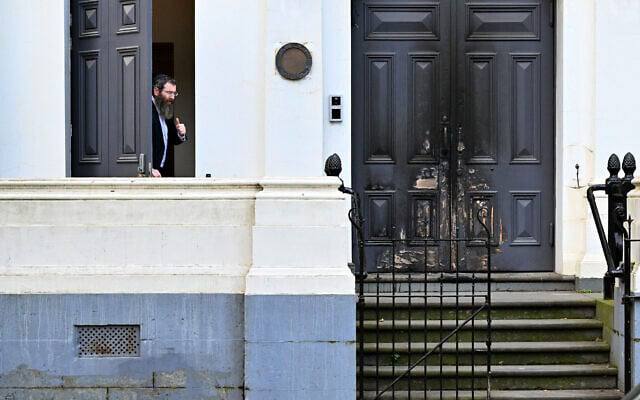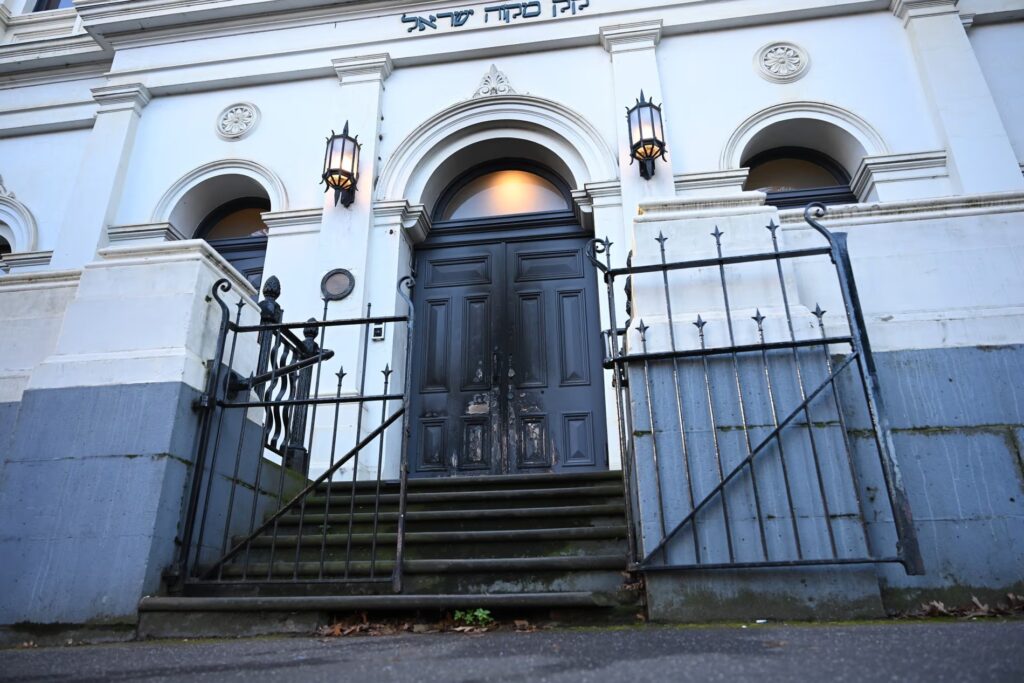UPDATES
Strength through diversity? Israel’s new “coalition of change” government
June 19, 2021 | AIJAC staff

Update from AIJAC
06/21 #03
This Update offers some analysis and comment on the complex new eight party governing coalition that was sworn in in Israel last Sunday – with a particular focus on the diversity of the new cabinet, with its record number of women, two Arab members, religious and secular ministers, and immigrants from various countries among its members.
Meanwhile, AIJAC’s Zachary Milewicz, together with other AIJAC staff, has produced a “Who’s who” of all the key players in the new Israeli government, including short bios.
We lead with Israeli academic Shany Mor, who notes how the diverse new Israeli cabinet gives the lie to vilification of Israel and its society from some left-wing commentators. It contains people from all walks of Israeli society – and not because someone set out to arrange it that way in a tokenistic manner, he notes, but because it reflects the genuine diversity and representativeness of the Knesset, Israel’s parliament. He also takes on the obsessive claims that Israel “has moved to the right” and points out that international preoccupations with Israel’s flaws appear to have very little to do with Israel itself. For Mor’s comments in full, CLICK HERE.
Next up is New York Times columnist and former Jerusalem Post editor Bret Stephens – who describes the new government as one of “patriotic traitors”. By this he means that the members of the new government had to abandon their fierce ideological convictions for the sake of pragmatic compromise, in the name of the greater national good. Stephens holds this up as an example for other democracies gripped by partisanship and paralysis. He also explains why outgoing PM Netanyahu lasted in office as long as he did. To get all the details, CLICK HERE. Stephens also had an excellent longer piece on Netanyahu’s legacy, his achievements and shortcomings, in Commentary magazine.
Finally, top Israeli intellectual and author Yossi Klein Halevi offers a more personal comment, explaining why he sees the new government as a strong sign of hope for Israeli democracy and society. He admits that this government is unwieldy and may not last long – but argues that even if it falls quickly, it will already have logged a major achievement. It will have offered a “counter-vision of an Israel that strives to respect and manage its essential differences and place the country above sectarian needs,” he says. For Klein Halevi’s well-written and passionate comments, CLICK HERE.
Readers may also be interested in…
- Another good opinion piece on what the new government says about the strength and dynamism of Israeli democracy comes from historian and former diplomat Michael Oren.
- An excellent bio of new Israel Prime Minister Naftali Bennett – including an analysis of his political history – comes from BICOM.
- Iran went to the polls yesterday to select a President – from a field of candidates narrowed down by Iran’s non-elected clerics to a mere handful in a way apparently designed to virtually guarantee the election of hardline judiciary head Ebrahim Raisi. Good comment on what to understand and look for as the Iranian election results are announced comes from experts Michael Rubin, Omer Carmi and Potkin Azarmehr.
- In addition, Tzvi Kahn points out that likely winner Raisi has credibly been accused of crimes against humanity for his complicity in the murder of thousands of dissidents.
- A top-notch effort to answer “frequently asked questions” about the state of negotiations on Iran’s nuclear program comes from scholars Mark Dubowitz and Andrea Stricker.
- A new study of attitudes in various European countries suggests the mainstreaming of antisemitism
- Some examples from the many stories and comments now appearing at AIJAC’s daily “Fresh AIR” blog:
- Ahron Shapiro looked at the legacy of outgoing Israeli PM Netanyahu, in a piece published in the Australian Jewish News. Ahron also wrote a blog correcting media myths about new Israeli PM Naftali Bennett’s views on a two-state resolution.
- Academic and AIJAC research associate Dr. Ran Porat also had a piece on Netanyahu’s complex legacy and the challenges for his successors in The Conversation.
- As noted above, AIJAC’s “Who’s who” of all the key players in the new Israeli government, including short bios by Zachary Milewicz and other AIJAC staff.
- Oved Lobel wrote about the neglected Iranian role in the latest Israeli-Hamas conflict, in the Australian Strategic Policy Institute’s The Strategist.
- Naomi Levin reports some new evidence suggesting the Australian Government is taking its responsibility to make sure our aid to the Palestinians is not misused very seriously.
- A new AIJAC video taking on claims that something akin to “apartheid” exists in Israel.
Israel’s New Government Is a Rebuke of Left-Wing Nonsense
Shany Mor
Newsweek, June 14, 2021
It’s impossible to say whether Israel’s new government will fail or succeed, whether it will long endure or fall apart, and whether its first steps this week will come to be seen as a dramatic new turn in the country’s history or more of the same. It’s also impossible to know what other unforeseen events in the Middle East will determine its agenda.
But what is already certain is what this new government has taught us about “expert” commentary in the U.S. about Israel. It has been woefully wrong.
On Sunday, Israel swore in a new government. Led by Prime Minister Naftali Bennet and Foreign Minister Yair Lapid, the new coalition comprises eight widely disparate parties: three from the right, two from the center, two from the left, and one Arab party.
If there is one picture that speaks to the emptiness of the progressive vilification of Israeli society and Israeli democracy, it is the group portrait of Israel’s new cabinet.
In the photo, twenty-seven ministers are arrayed around President Reuven Rivlin. They range in age from 37 to 74. Nine are women. One sits in a wheelchair. It might be hard to see in the photo, but three are observant Jewish men with yarmulkes on their heads. Two are Arabs, one Druze and one Muslim. Five are immigrants, born in Ethiopia, Morocco, and the former Soviet Union.
It’s worth emphasizing that this astonishingly diverse cabinet isn’t assembled, in the style of a U.S. President’s cabinet, under the direction of one leader who might (or might not) be trying to present an image of diversity. These ministers are the top parliamentarians of the parties that entered the coalition. They are not there because of tacky tokenism or pressure from what Bill Clinton famously called “the bean counters.” They are diverse because the Israelis are diverse, and they are picked from a diverse parliament because the Israelis elected a diverse parliament.

Israel’s diverse new cabinet is not the result of tokenism, but a reflection of the genuine diversity of groups and electorates represented in the Knesset, Israel’s parliament (Photo: Roman Yanushevsky / Shutterstock.com)
In spaces where Israel is held to be the ultimate irredeemable sinner of white settler colonialism—usually by people who are themselves white and very reluctant to forego any of their own “privilege”—such a photo cannot possibly make sense. It will likely be ignored.
In spaces where Israel was long held to be undergoing an “inexorable rightward shift,” the presence of both major left-wing parties in a governing coalition for the first time in years makes no sense. This, too, will likely be ignored.
Because for the obsessive critics, the passionate obsession with Israel’s flaws had very little to do with Israel; it has always been a projection of anxieties about their own societies faults and, more subtly and perniciously, a way of explaining the unremitting hostility of Israel’s enemies in the region without having to engage critically with the openly stated goals of those same enemies.
To be sure, center-left parties have tended to perform poorly in Israeli elections in recent years. There are many causes for this, not least the dramatic drop in Israelis’ security each of the three times center-left coalitions have come to power in the last generation.
Center-left parties have also performed remarkably poorly in the same period in Britain, France, Germany, and a host of other countries. And we haven’t even broached the awkward unpleasantness that visited American democracy in the past five years and may yet return in some unknown form in 2022 and 2024.
So it’s true that Israeli democracy faces some stiff challenges, not least the corrosive effects of the unresolved status of territories conquered in the Six Day War in 1967—unresolved, it bears noting, because of the refusal of Israel’s enemies to agree to any settlement that would involve a full reconciliation and mutual recognition.
But Israeli democracy has survived nevertheless, and this week it lived to see a new day few of its vociferous detractors believed might come.
Everyone who regularly opines on Israel should take a good look at that cabinet photo. And some should follow that with a good look in the mirror too.
Shany Mor is an adjunct fellow at The Foundation for the Defense of Democracies and a lecturer at IDC Herzliya. The views in this article are the writer’s own.
Opinion: Israel’s coalition of patriotic traitors

The faces of Israel’s new government (l to r): Ethiopian-born Immigration Minister Pnina Tamano-Shata; Minister for Regional Affairs Issawi Frej, a Muslim Arab; Openly gay Health Minister Nitzan Horovitz (Photos courtesy of Wikimedia).
Israel’s new government must be a puzzle for anyone who thinks of the Jewish state as a racist, fascistic, apartheid enterprise.
Issawi Frej is Arab and Muslim and used to work for the Peace Now movement. Now he’s Israel’s minister for regional cooperation. Pnina Tamano-Shata is Black: The Mossad rescued her, along with thousands of other Ethiopian Jews, from hunger and persecution when she was a small child. She’s the minister for immigration and absorption. Nitzan Horowitz is the first openly gay man to lead an Israeli political party. He’s the health minister. At least one deputy minister, as yet unnamed, is expected to be a member of the Raam party, which is an outgrowth of the major Islamist political group in Israel.
As for Benjamin Netanyahu, “King Bibi” has finally left office — churlishly, bitterly, pompously — but in keeping with the normal democratic process. He faces criminal indictments in multiple cases. His immediate predecessor as prime minister, Ehud Olmert, spent 16 months in prison on corruption charges.
It’s some fascist state that subjects its leaders to the rule of law and the verdicts of a court. Meanwhile, Mahmoud Abbas, president of the Palestinian Authority, “postponed” elections in April. He’s in the 17th year of his elected four-year term of office.
A new government, even one as fragile and fractious as Israel’s, is always an opportunity for a course correction. But the course correction Israel most needs is not the one its critics generally suppose.
Netanyahu lasted in office as long as he did not because Israelis wanted a strongman or someone who would crush the Palestinians. He lasted because he was, in many ways, good at the job.
Over his 12 continuous years in office, the Israeli economy roughly doubled in size. Last year’s Abraham Accords brought the overarching Arab-Israeli conflict to a near conclusion, even if the Israeli-Palestinian conflict remains unsolved. Despite periodic battles with Hamas, there were no all-out wars. Israelis were more secure in their persons during the Netanyahu years than they had been in the decade prior. And Israel’s COVID-19 vaccination campaign was the envy of the world.
Against Iran, Israel conducted arguably the most successful covert-ops campaign in modern history. With respect to Palestinians, Netanyahu avoided both the territorial concessions demanded by the left and the re-occupation of Gaza desired by the extreme right. Toward the United States, Netanyahu defied Barack Obama and got what he wanted from Donald Trump: the American Embassy in Jerusalem, recognition of Israeli sovereignty in the Golan Heights, and U.S. withdrawal from the 2015 Iran nuclear deal.
None of this may square with the wishes of Western elites or progressives, whose obsession is for a Palestinian state. But what Israelis wanted in the last election wasn’t a Palestinian state, which is a good idea in theory but (for now) a terrible idea in practice.
What Israelis want is a better form of politics, the one area in which Netanyahu conspicuously failed. It’s a politics freed of his habits of demagogy, vilification, sleaziness and sheer pettiness, which is ultimately what brought him down.

The new Israeli government is led by Naftali Bennett, a religious right-winger (centre); anchored by centrist secularist Yair Lapid (left); and made possible by conservative Muslim Mansour Abbas (right) (Photo courtesy of the Ra’am party).
That’s the promise of the new government. It’s led by Naftali Bennett, a right-winger and former director of the settlers’ council who is the first religiously observant Orthodox Jew to be prime minister. It’s anchored by Yair Lapid, a centrist and former TV journalist who epitomizes secular Israel. It got into power thanks to the support of the Raam party’s Mansour Abbas, a religiously conservative Muslim who has implicitly given a stamp of endorsement to a government whose policies — especially toward Palestinians — he surely opposes. It includes members who are to the right of Likud and to the left of Labor.
It’s difficult to think of any coalition government, in any country, that is as ideologically diverse. It’s also easy to suppose that nothing holds it together beyond shared loathing of Netanyahu, who remains leader of the opposition. It wouldn’t take much to bring the new government down and return him to power.
But there is also an opportunity in the new government, and it holds lessons for other Western democracies gripped by partisanship and paralysis. Nearly all members of the new coalition had to sacrifice a point of political or moral principle, break ranks with some of their own constituents and get branded as traitors to their respective movements in order to make this coalition possible. They are ideological turncoats, at least to those who think of ideological purity as a virtue.
Being willing to abandon a ferocious conviction for the sake of a pragmatic compromise used to be considered a virtue in democracy. Ideological treason can also be a form of civic patriotism. In what’s supposed to be one of the free world’s most factionalized, tribalized, internally divided countries — Jews, Arabs, secular, national-religious, ultra-Orthodox, Mizrahi, Russian, Druze and so on — an Israeli government is giving civic nationalism a go.
It may or may not work. But like so much else in Israel, it deserves more respect than it is likely to get.
Bret Stephens is a columnist for the New York Times.
Why this fractious coalition gives me hope
If all it achieves is to liberate Israel from those who have tried to unravel the delicate balance between nationalism and democracy, decency and power, then dayenu – it’s enough!

The leaders of the eight parties making up Israel’s new government; Each showed courage and willingness to take a risk, Halevi says (Photo: Israeli government handout).
Israel’s 36th government is a coalition of the courageous. Each leader who has led his or her party into this strange and unwieldy government has taken a risk. The hard left Meretz has empowered the hard right Yamina, and Yamina has enraged much of its base by partnering with Meretz. Yisrael Beitenu, which not long ago accused Arab Israelis of treason, has embraced the Islamist party, Ra’am, as a coalition partner,; and Ra’am, whose founding charter calls Zionism racism, has joined a Zionist government.
Among the leaders of this coalition, none has been more self-sacrificing than Yair Lapid. Though Lapid was the senior politician within the anti-Netanyahu coalition and head of its largest party, he deferred to Benny Gantz, who seemed the more likely to defeat Netanyahu. And now he has deferred to Naftali Bennett, leader of one of the coalition’s smallest factions. In so doing, Lapid has embodied the meaning of leadership and love for Israel, restoring to our politics its lost nobility.
Two Israels were on display at the Knesset swearing-in ceremony for the new government. There was the Israel of desecration, MKs shouting, faces contorted with hate, trampling on the dignity of the state as they refused to allow the prime minister-designate to speak at his own inauguration. And there was the Israel of Naftali Bennet and Yair Lapid, speaking with passion and reason and self-control as they presented their coalition of healing.
After years of officially inspired campaigns of hatred and divisiveness, contrived to serve one man’s political needs, we have the most diverse government in the country’s history. After the worst violence between Israeli Arabs and Israeli Jews since 1948, we have the nation’s first Jewish-Arab coalition.
If the new coalition achieves nothing more than liberating Israel from those who have tried to unravel the delicate balance between nationalism and democracy, decency and power – dayenu, it is sufficient. If the new coalition achieves nothing more than offering a counter-vision of an Israel that strives to respect and manage its essential differences and place the country above sectarian needs – dayenu.
Can this coalition last? Given its bare majority and inner contradictions, the odds aren’t brilliant. And yet even if it doesn’t survive its term, it has already won.

Israeli intellectual and author Yossi Klein Halevi: “Even if this government does not survive, it has already won.” (Photo: Wikimedia Commons | License details)
This government will be in a constant struggle for balance among its radically disparate components. There will be frustration on all sides as cherished agendas are stalemated and thwarted. Critics will accuse it of being a government not of national unity but of paralysis.
Yet the search for balance needs to be the heart of the Israeli project. Paradox is the inevitable result of the ingathering of the Jews home from a hundred exiles, with all our contradictory visions and fears and notions of the meaning of Jewishness and a Jewish state. And then factor into this mix Israel’s Arab citizens who are not part of our national mythos of ingathering, whose Israeli identity is at best tenuous, and the search for equilibrium becomes nearly impossible.
We are by necessity a coalition system. Only a coalition can attempt to hold the paradoxes of Israeliness. This government will be our most radical experiment in the restraint and humility that is the heart of coalition-building.
The implicit question driving this coalition is: What holds us together? That question has become increasingly urgent in recent years, as the two foundational elements of our identity – the Jewish and democratic nature of the state – are placed in increasing tension. Once, not so long ago, most Israelis agreed that there could be no Israel that didn’t represent the Jewish people and the continuity of Jewish history and that didn’t, at the same time, aspire to fulfill the promise of our Declaration of Independence for full equality for every citizen.
Today, thanks in no small measure to the previous government, that basic assumption of Israeliness can no longer be taken for granted. The task of this government is, above all, to restore our sense of commonality, by affirming and defending Israel’s Jewish and democratic identities.
The last years of Netanyahu’s reign were a glimpse into the possible unraveling of Israeli society. This government’s contradictions are the source of its hope.
Yossi Klein Halevi is a senior fellow at the Shalom Hartman Institute, where he is co-director, together Imam Abdullah Antepli of Duke University and Maital Friedman, of the Muslim Leadership Initiative (MLI), and a member of the Institute’s iEngage Project. His latest book, Letters to My Palestinian Neighbor, is a New York Times bestseller. His previous book, Like Dreamers, was named the 2013 National Jewish Book Council Book of the Year.
Tags: Israel





